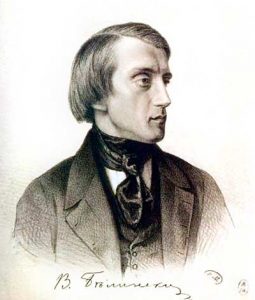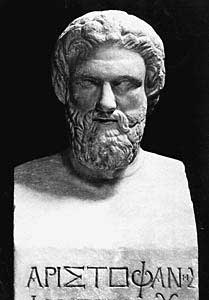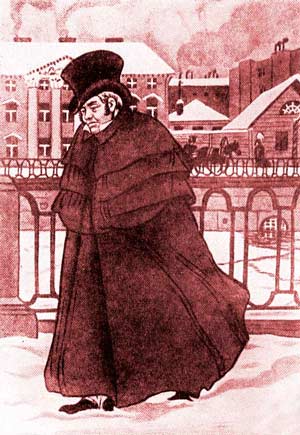Belinsky “Literary dreams”
 The basis of the article “Literary Dreams” by Belinsky was based on the idea that we do not have literature, because there is still no society, the physiognomy of the people has not been clarified, the Russian people have not been determined. He makes an attempt to define the very concept of “literature” and “nationality.”
The basis of the article “Literary Dreams” by Belinsky was based on the idea that we do not have literature, because there is still no society, the physiognomy of the people has not been clarified, the Russian people have not been determined. He makes an attempt to define the very concept of “literature” and “nationality.”
Literature is “a collection of this kind of artistic and verbal works, which are the fruit of free inspiration and harmonious efforts of people created for art, breathing for him alone and destroyed outside of him, fully expressing and reproducing in their graceful creations the spirit of that nation among which they born and brought up. ” So, literature is a mirror of life; the poet serves only beauty, but involuntarily, unconsciously, like an echo, reflects all life. Art is the highest revelation of the divine spirit in man, the poet is the herald of eternal truth, the priest, the minister of “pure beauty.” He calls the “spirit” of the people that side of his being, in which he reflects some side of the life of the whole humanity; if the people are not able to do this, “it does not live, but languishes,” and has no historical value. Enthusiastic line devotes Belinsky beauty and harmony of the universe. For him, nature is a living organism, a concrete embodiment of the world spirit. All these ideas are a reflection of Schellingism, a legacy of lectures and talks of Nadezhdin.
Nadezhda skepticism was expressed in a strict attitude to Russian literature. Belinsky argues in this article that we do not have literature, there are only writers, but there is no organic continuity between them that would speak about the development of history … Belinsky’s decisive statement is completely erroneous: he did not know Russian literature of the 18th century. in its entirety, he knew only the works of individual writers, and therefore did not notice those links that connect their major works, with the help of small ones into something organically whole.
With careless swagger, Belinsky criticized writers of the 18th and 19th centuries, giving out sentences without question, – there was no authority for the student of Nadezhdin. His response to Pushkin here is just as decisive: his work has dried up, “Boris Godunov” was his last inspiration. ” He spoke with the same certainty about the small writers of his time. He defined his time as “transitional,” when one period ended, “Pushkin,” and when all the old gods were abolished.



